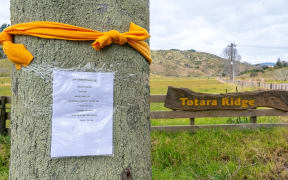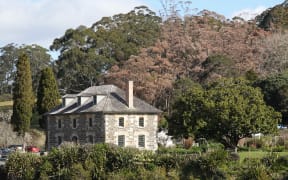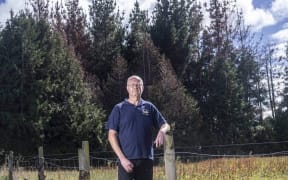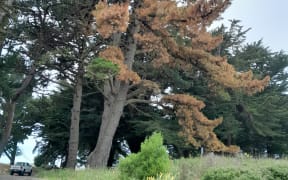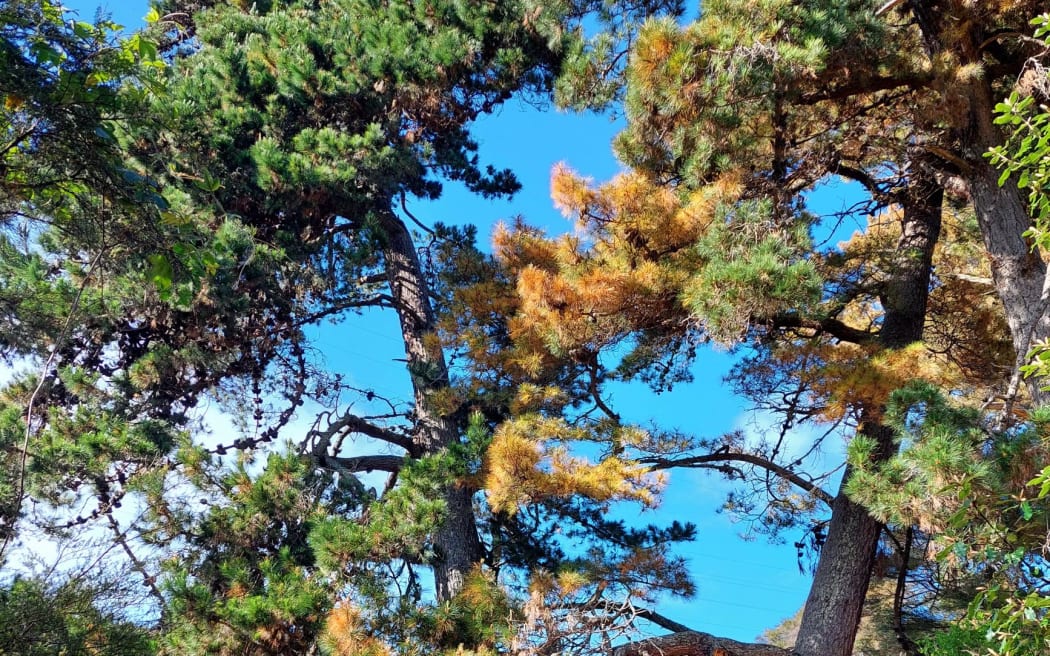
A poisoned pine tree in Dellside Reserve, showing signs of decay. Photo: Supplied / Tasman District Council
Two groups of pine trees have been mysteriously poisoned in a Richmond reserve, with the Tasman District Council now forced to remove them at a cost to ratepayers.
The council have spent more than $10,000 removing about 30 dead pines from Dellside Reserve, as falling limbs from the dead trees posed a risk to walkers and mountain bikers using nearby tracks.
Reserves team leader Richard Hilton said four large mature pinus radiata, estimated to be about 80 years old, and a group of 20 to 30 younger trees, about 40 years old, all appeared to have been poisoned in the past three months or so.
Staff working in the area noticed multiple drill holes in each of trees, where herbicide had been poured into them, before they were showing signs they were dying.
"It was quite professionally done in the sense that the person knew what they were doing."
The incidents had been reported to police.
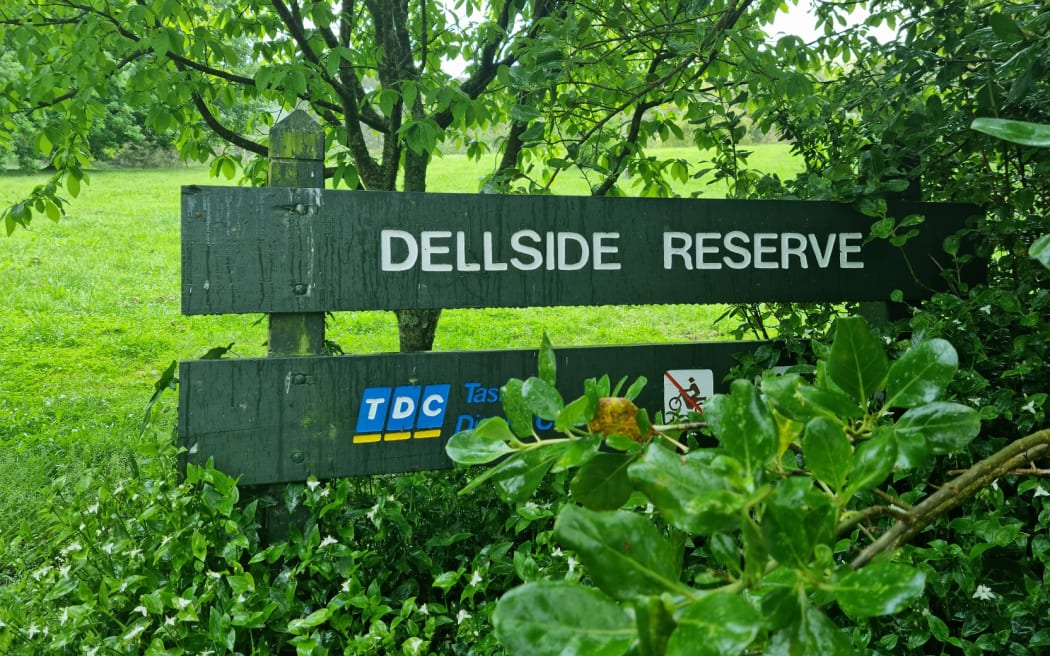
Dellside Reserve is popular with walkers and mountain bikers. Photo: RNZ / Samantha Gee
The pines were among mixed native bush on a steep bank in the Richmond Hills and Hilton said the most obvious motivation for killing the trees was an ill-founded notion they posed an environmental problem - concerns about seeding issues, or the impact on the surrounding native bush.
"Because it's a highly managed area, seeding has never happened and because we have that density of cover with the native trees, we don't tend to get many seedlings popping up in that environment, he said.
"Nobody has been shaded out, nobody's view line was affected, I suspect it was because they felt they were pine trees within a native bush area."
Hilton said anyone with concerns about trees on council land should contact the council to discuss their management.
"One of the difficulties when a tree is poisoned is that we can't leave it standing if we've got people that are going to walk or cycle underneath them as they will eventually become a danger so there was no choice, we had to fell the trees before they started deteriorating."
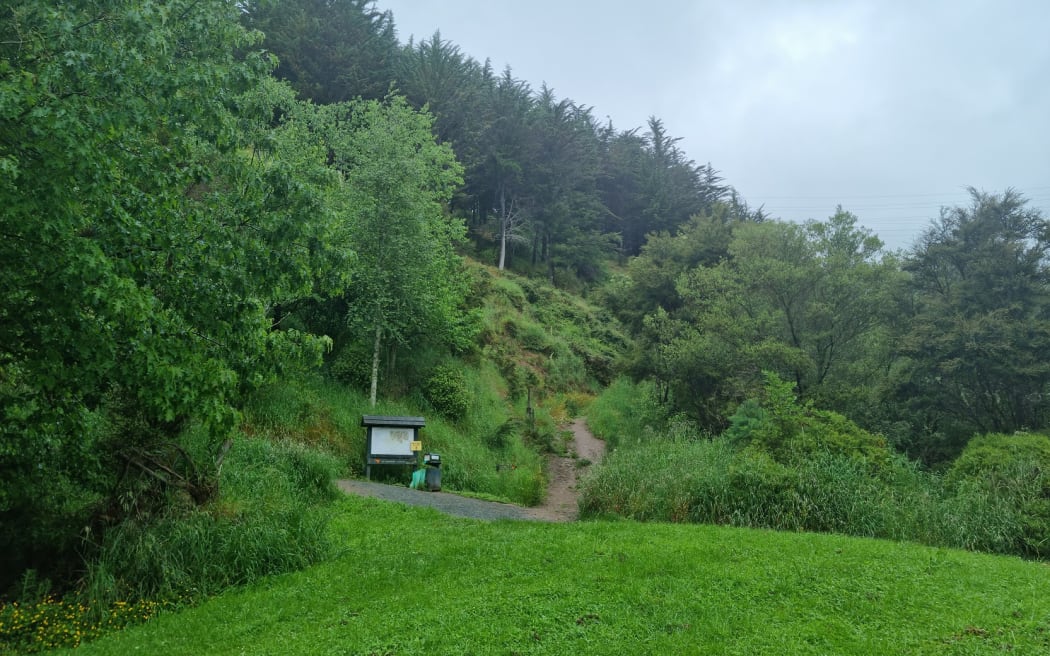
More than two dozen pine trees have had to be felled after they were deliberately poisoned in Richmond's Dellside Reserve. Photo: RNZ / Samantha Gee
The majority of the dead trees had already been removed, which Hilton said was labour-intensive work involving several arborists and a five-tonne excavator at a cost of more than $10,000.
"The trees were climbed, pieced down and the excavator used to place the timber on the hillside, we did need to enlarge some of the walking and mountainbiking tracks to gain access and we did unfortunately have to take out a couple of smaller, native trees that were planted by the community."
The cost was unbudgeted and would affect other control work, removing banana passionfruit, old man's beard and woolly nightshade from the area.
"These particular weeds have more of a detrimental effect than the pine trees do."
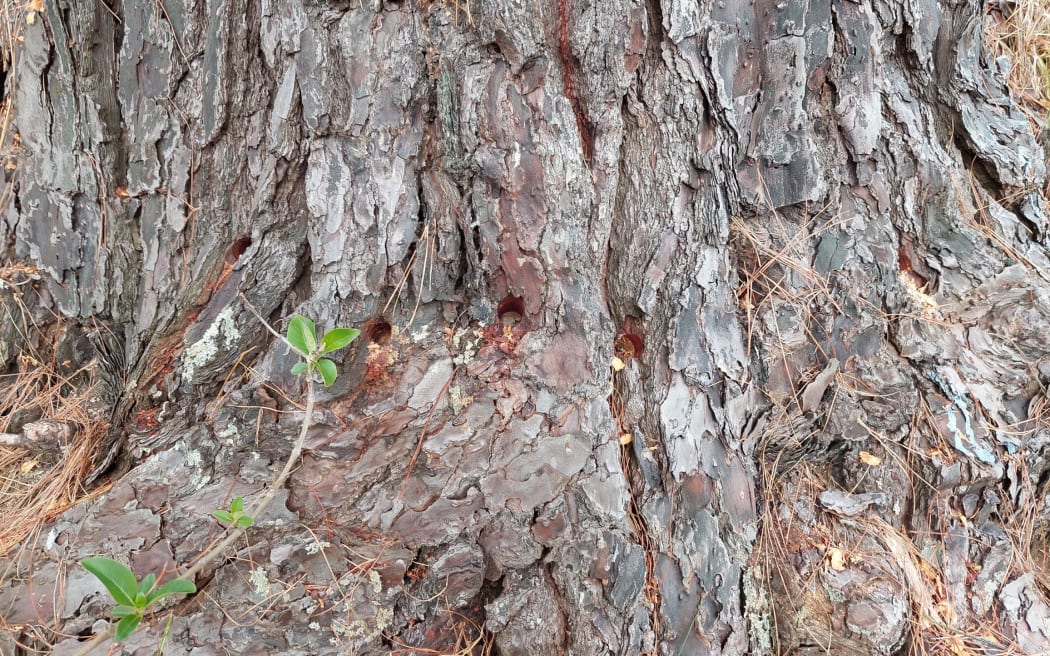
One of the pine trees killed after holes were drilled into its base and herbicide poured in. Photo: Supplied / Tasman District Council
It follows other deliberate attacks on pine trees in the Tasman District. Three trees were poisoned at Pine Hill Reserve in Ruby Bay earlier this year, while 20 pines were killed in Research Orchard Reserve, near the Coastal Highway several years ago.
Hilton said the incidents did not appear to be related, given the method differed at each location, but they were likely for similar reasons, "because they were pine trees".
The trees at Pine Hill Reserve were drilled into some time ago but were now starting to show decay, and Hilton said they would have to be felled before the timber deteriorated to a point where it was unsafe to do so.
